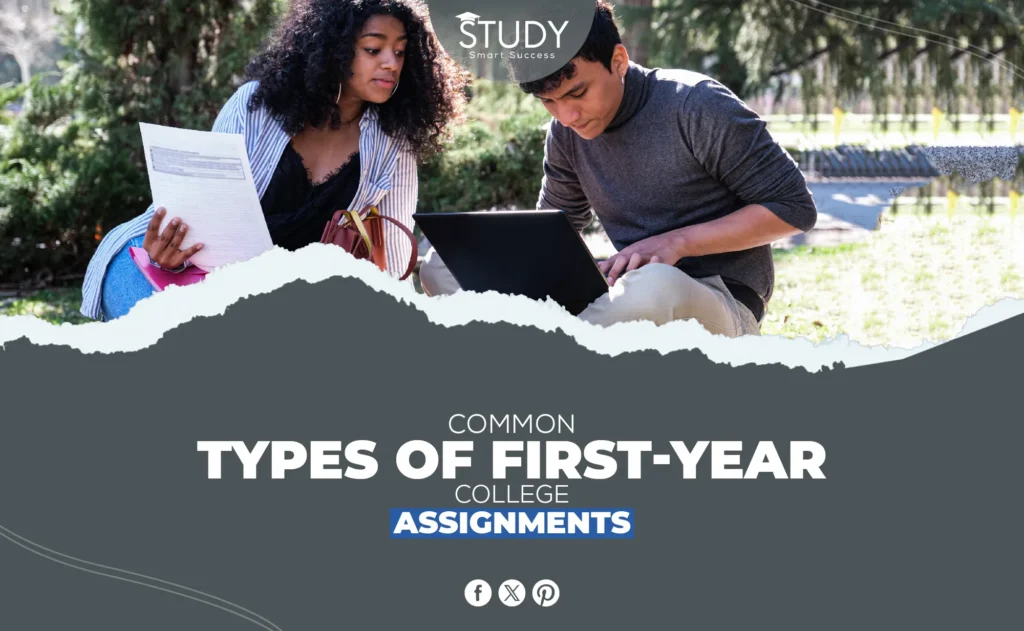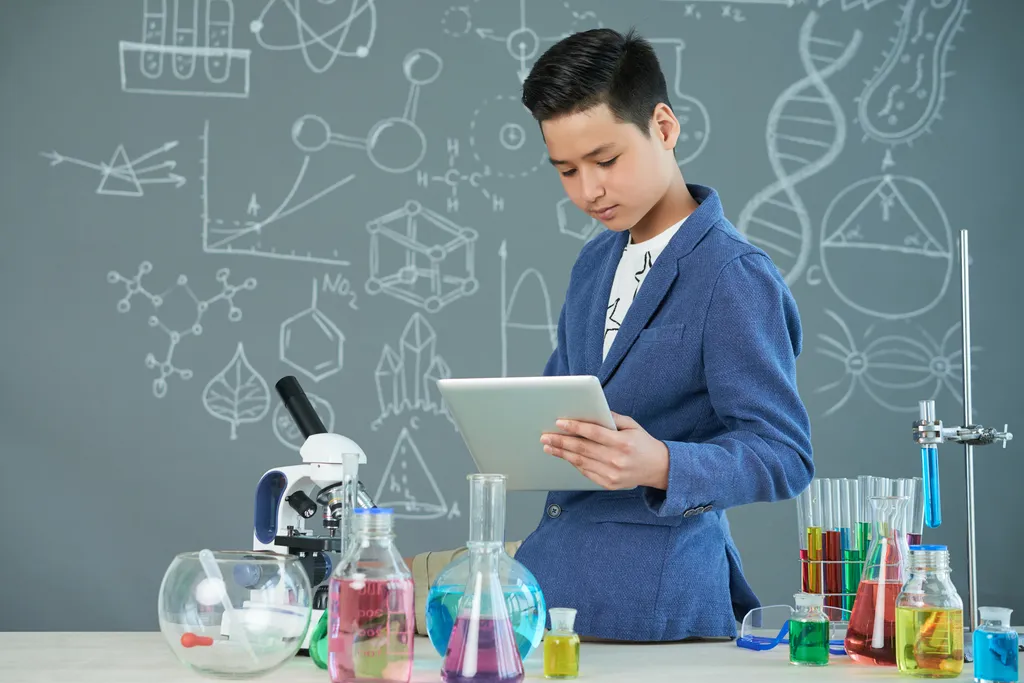Introduction
College can be difficult if you’ve never left home or researched your major. Weekly exams, lectures, discussions, and homework. One year of school might be daunting. First-year college expectations. This blog post discusses first-year college assignments and work. Review prepares you for projects, presentations, essays, and research papers. It should aid first-year college homework. Expert teachers can help with homework.
Read more about How to Prepare for Your First-Year College Assignments.
6 types of First-Year College Assignments.
- Group Projects
- Research Papers
- Essays
- Lab Reports
- Presentations
- Book Reviews
Group Projects
Working in a team to complete an assignment
Students collaborate and get to know each other through group projects. Teamwork and task sharing might be challenging, but group projects teach leadership, communication, and problem-solving. Working together improves education, community, and perspective-taking. Learning about others and their good and bad attributes through group activities helps broaden students’ perspectives.
Research Papers
Analyzing primary and secondary sources to develop an argumentative essay
Students struggle with research papers but must learn to think critically and evaluate. A well-researched argumentative essay requires both primary and secondary materials. Primary sources are firsthand accounts. Studies of primary sources are secondary sources. Get the paper’s information from trusted sources to ensure accuracy.
After learning the materials, you must examine and comprehend them to write a compelling argumentative thesis. Focusing on the topic and supporting evidence is crucial. Carefully planned and proof-supported research articles can teach valuable skills.
Essays
Writing about a specific topic or point of view in an organized and creative way
Essays are a terrific way to express your opinions. Whether a teacher asked you or you did it yourself, it helps you organize your ideas and arguments clearly and engagingly. A well-written essay demonstrates creativity, critical thinking, and clarity. You can write about logic or self-reflection. Themes and styles are endless. Why not produce an engaging essay to demonstrate your writing skills?
Lab Reports
Documenting experiments with results and conclusions drawn from the process
Lab reports are essential in science because they describe what was tested, how, and the outcomes. Science is about collecting and analyzing facts. It teaches us about the world. Tracking study findings in every subject—physics, biology, and chemistry—is crucial. If researchers write a long methodology, findings, and analysis sections, readers will grasp what they did and learned. Writing things down helps scientists discover new things.
Presentations
Crafting visual aids such as slideshows or videos to present information on a given topic
Presentations are vital in the job and school. These drawings convey crucial messages clearly and humorously. Shows must be well-planned and organized. Choose the correct images and photographs and make your message clear. With the proper equipment and knowledge, anyone can build a fascinating slideshow or movie that captures their subject and remains with viewers. If you show it to coworkers or students, produce a relevant visual aid.
Book Reviews
Summarizing the main themes of a book and providing personal opinions on it
Book reviews are a terrific method to express your opinions and assist potential readers in comprehending the main points. A good book review is lengthy, intelligent, and informative. It should emphasize the book’s plot, characters, and writing. Avoid spoilers when summarizing a book’s primary concepts.
This lets readers experience the story while still knowing it. Ultimately, a book review is only your opinion. However, your feelings about a book can influence others’ reading choices. Share your thoughts—you never know when it can help someone find their new favorite book!
Conclusion
Numerous kids must master group projects, research papers, essays, lab reports, speeches, and book reviews for school and work. Practice and hard work may make these skills look easy for anyone. Top achievers excel at applying these talents in different situations. Set aside time today to work on group projects, research papers, essays, lab reports, presentations, and book reviews to improve! Work on these talents today to succeed in the future. Have fun!
FAQs
Q1: What is the difference between a primary and a secondary source in research?
First-hand reports of events, studies, and statistics are primary sources. It could be interviews, diaries, raw data, or historical documents. Secondary sources analyze or interpret main sources. Books, essays, and documentaries about primary sources are examples.
Q2: How can I improve my essay-writing skills?
Write better essays by practicing, reading widely, and accepting comments. Understand the essay structure, your topic, and your points coherently. A strong vocabulary, grammar, punctuation, and spelling are also essential.
Q3: What should be included in a lab report?
Lab reports typically comprise an introduction, methodology, results, and discussion or conclusion. The introduction describes the experiment, the methodology describes how it was done, the results are presented, and the discussion or conclusion analyzes them.
Q4: What makes a presentation effective?
A good presentation is concise and interesting. Be well-structured, incorporate images, and communicate the main point. Speakers should be enthusiastic, knowledgeable, and interactive.
Q5: How do I write a compelling book review?
A compelling review summarizes the book’s key ideas and plot without spoilers. It should reveal the book’s characters, writing style, and your thoughts. Consider your perspective as well as the book while writing a review.








